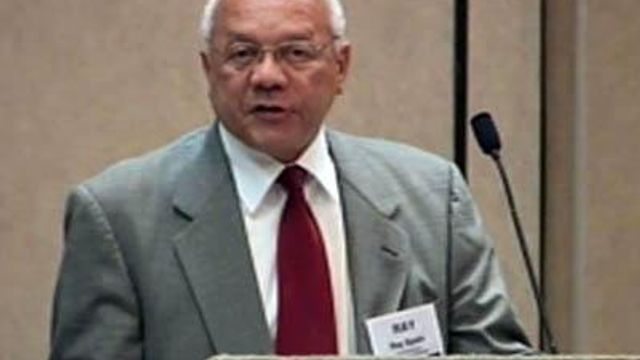NC school superintendents tell tales of budgetary woes
Local public school superintendents from around North Carolina spent almost five hours Tuesday discussing how they have dealt with reduced education funding in recent years.
Posted — UpdatedThe State Board of Education held a special meeting to hear from superintendents about how they coped with this year's budget cuts and further cuts planned for next year. The state board holds its regular meeting in its downtown Raleigh headquarters Wednesday and Thursday.
The state budget crafted by the Republican-majority in the General Assembly increased state funding for teaching jobs but made cuts to education funding elsewhere. The state Department of Public Instruction says that nearly 2,000 classroom jobs, some of which were unfilled, were eliminated across the state this year.
"When our General Assembly members try to tell you that they've added jobs, they really haven't," Caldwell County Schools Superintendent Steve Stone said, noting his district has one adult for every 8.4 students this year, up from one for every 7.7 students in 2009.
One after one, Stone and other superintendents related tales of laying off teachers or other staff members, reworking school hours and bus schedules for more efficiency and cutting programs to save money.
Madison County Schools Superintendent Ronald Wilcox said stress is high and morale is low.
"People are wondering if they're going to have a job," Wilcox said.
Scott Penland, superintendent of Clay County Schools, told his colleagues how his pride at the Republican takeover of the General Assembly in 2010 has quickly turned to disgust as lawmakers refused to spare schools from the budget ax.
"There is a limit to how deep we can cut and still sustain a viable education program," Penland said. "Making education the top priority should be the one thing that all political parties should agree on."
Landon Manning, a senior at Columbia High School in Tyrrell County, said he fears for the future of his rural hometown because of continued budget cuts.
"Education is the key of future success for our citizens as well as our region," Manning said. "Employers cannot relocate to areas that have no educated citizenry, and educated citizens cannot stay in areas with low job opportunities."
Gov. Beverly Perdue has been pushing for a 0.75-cent increase to the state sales tax rate to help restore some of the money cut last year as well the expected cuts for 2012-13. She told the superintendents that North Carolina's future depends on reversing the slide in education funding.
"This (is) the most important economic development issue of this century in North Carolina," Perdue said. "Any damage we do to education damages our ability – not just as a state, but as a country – to compete."
State Board of Education Chairman Bill Harrison commended the superintendents for doing the best they could amid years of tight budgets, and he criticized political candidates who say public education in North Carolina needs more reform and less money.
"The only part of our (educational) system that is failing, the only part of our system that is broken is that which has to do with funding and our commitment at the state level to doing what's right for kids," Harrison said. "You guys aren't broken by any stretch of the imagination. You're doing incredible work each and every day with limited resources, and hopefully, we can turn this ship around."
• Credits
Copyright 2024 by WRAL.com and the Associated Press. All rights reserved. This material may not be published, broadcast, rewritten or redistributed.






